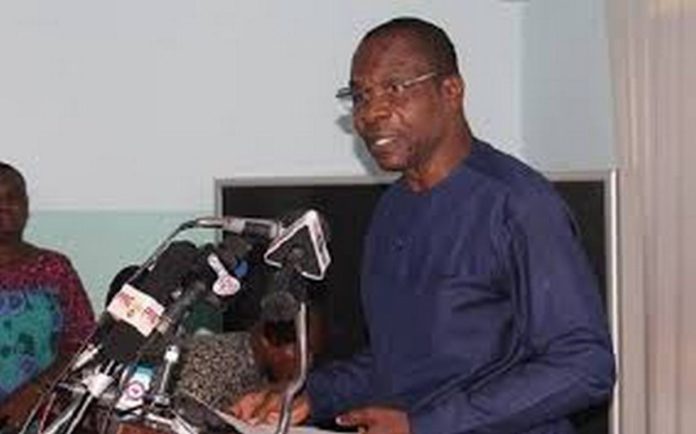The Ghana Journalists Association (GJA) has urged media houses to adopt new work systems that will allow journalists to work from home.
“We encourage media houses to adopt remote work systems that allow staff members to work from home and ensure their safety and protection since we are not in normal times,” A statement from GJA read.
“In order to stay safe from the pandemic, the GJA advises journalists and media practitioners to, as much as possible, adopt innovate ways of news gathering and reporting such as the use of Skype and telephone for interviewing instead of inviting panellists to the studios for interviews,” the statement read further.
The Ghana Journalists Association (GJA) is urging all media houses and journalists to, as a matter of urgency, adhere strictly to the health and safety protocols recommended by the Ghana Health Service and the Ministry of Health to protect themselves against COVID-19 as they discharge their core mandate of getting the public informed about issues.
The GJA reckons that journalists, in the news gathering process and programming such as interviewing and discussion programmes, face greater risk of being infected by COVID-19.
The Association notes also with satisfaction arrangements made by some media houses to uphold safety protocols against the Novel Coronavirus and urge others to adopt similar safety measures.
The health crisis is likely to have serious consequences on media practitioners and their working conditions in newsrooms, given the closeness of contact in their workplaces.
The situation has become even more precarious with the recording of community transmission cases of COVID-19.
In keeping with ethical principles of fact, truth, balance and the people’s right to know, journalists cannot cover COVID-19 from self-quarantine, as there is the need to go to the field, which then increases their risk of infection.
In order to stay safe from the pandemic, the GJA advises journalists and media practitioners to, as much as possible, adopt innovate ways of news gathering and reporting such as the use of Skype and telephone for interviewing instead of inviting panellists to the studios for interviews.
This will ensure the practice of social distancing, as well as help reduce human contact and the risk of getting infected by the disease.
The GJA also urges media owners to acquire Personal Protective Equipment (PPEs) such as gloves, bodysuit and full face mask for use by their reporters who may be engaging infected persons or reporting from compromised sites.
The GJA calls for the provision of running water or Veronica Buckets where necessary as well soaps, alcohol-based hand sanitizers and other protective equipment to journalists in order to guarantee them optimal protection.
We also encourage media houses to adopt remote work systems that allow staff to work from home and ensure their safety and protection since we are not in normal times.
The GJA in collaboration with the Ministry of Information and the Ghana Health Service will from Monday, March 23, roll out training programmes on how to report effectively on COVID-19 and equip the media with the appropriate information. The training programmes, which will take off in Accra, will be extended to all the regions within the week.
As journalists scale up efforts to educate the public on the pandemic, we reiterate the need for them to spread calm and not fear.
The GJA commends the government for the measures put in place to contain the situation, as well as health professionals for their dedication and commitment to duty at this critical moment of our national life.
May God help our homeland Ghana.
 The Spot Of Latest Trending News And Leaks Log On For Latest Political News, Health Related Issues And More
The Spot Of Latest Trending News And Leaks Log On For Latest Political News, Health Related Issues And More








